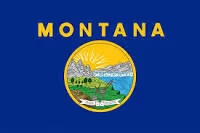Top-Rated Debt Collection Agency in Wyoming
Efficient and Trustworthy Debt Collection in Wyoming - No upfront fees, pay only when we recover your debt. Secure your FREE Consultation or submit your claim today.

Experience Seamless and Successful Debt Recovery with Debitura in Wyoming
Discover the value of working with Debitura, a leading debt collection agency in Wyoming. Our informed approach to debt recovery harmonizes strict adherence to Wyoming's rules and regulations with efficient methods designed to resolve outstanding payments. Our strong commitment to professionalism and understanding of the locale ensures optimal results, setting us steps ahead in the industry.

Complete debt recovery service from initiation to resolution in Wyoming.

Data-driven, customized debt recovery in Wyoming.

Leverage insights from 500+ global debt collection professionals.

Wyoming debt recovery success rate peaks at 87%.
Key facts
- Debt Collection Laws: Debt collection in Wyoming is regulated by both federal and state laws.
- Statute of Limitations: The limitation period is 10 years for written contracts and 8 years for oral contracts.
- Interest Rates: Wyoming's legal interest rate is 7% per year, unless otherwise stated in a contract.
- Late Payment Fees: There is no maximum late fee applicable to overdue invoices in Wyoming.
- Wage Garnishment: Wyoming follows federal wage garnishment laws, allowing up to 25% of disposable earnings to be garnished.
- Small Claims Limit: Small claims cases that do not exceed $6,000 are heard in Circuit Courts.
- Collection Agency Regulations: Collection agencies must be licensed and have an established office in Wyoming.
- Debt Buyers: Debt buyers are required to be licensed by the Wyoming Collection Agency Board.
- Attorney Regulations: Lawyers not licensed in Wyoming can collect debt as long as they do not involve the courts.
- Fair Debt Collection Practices Act: Wyoming follows the Fair Debt Collection Practices Act as part of its regulations.
This guide is not legal advice and laws/rules may change; consult a qualified professional for personalized assistance. Use at your own risk.
Introduction to Debt Collection In Wyoming
In the economic ebb and flow, debt forms an integral part of the financial fabric. Debt collection is a vital aspect for both businesses and individuals in maintaining financial stability. It is a process where creditors or businesses collect funds that are overdue or from accounts that are deemed as default.
The key actors in debt collection are the debtor, creditor, and collection agency. A debtor is the individual or entity that owes money to a creditor. The creditor, on the other hand, is the individual or entity to whom the debt is owed. The collection agency is the third party hired by a creditor, which specializes in debt collection.
In most cases, creditors hire collection agencies when they are unable to contact or receive payments from the debtor. It’s also worth noting that there are collection agencies who purchase delinquent debts from creditors and try to collect debts for their own profit.
Key Stages in Debt Collection
Debt collection in Wyoming, similar to other jurisdictions, typically transpires through three distinct stages: pre-legal, legal, and debt enforcement.
The pre-legal stage involves friendly reminders, demands, and notices. It is an attempt to reach a voluntary settlement between the debtor and creditor, without involving any court proceedings. This stage is often marked by calls or letters to the debtor reminding them of the due payments, proposal for suitable payment plans, and if agreed, closing the debt on agreed terms.
The legal stage comes into the picture when the pre-legal stage doesn't result in the recovery of the debt. This step may involve legal advisors and might lead to proceedings in the court. The creditor may file a legal claim against the debtor, seeking the court's help in debt recovery.
The debt enforcement stage is the final stage. It is undertaken when a legal judgment has been passed but the debtor still fails to repay the debt. This is the harshest stage of all since it could comprise serious consequences for the debtor, such as wage garnishments, liens against property, or even a requirement to sell assets to pay off the debt. Failure to comply with enforcement actions can even lead to jail time in some cases.
Debt Collection Laws In Wyoming
The process of debt collection, while paramount for the economic machinery, also requires the establishment of laws and regulations to ensure fair practices. These laws are mainly bifurcated between federal and state jurisdiction. The former governs the broad principles under legislation such as the Fair Debt Collection Practices Act (FDCPA), the Fair Credit Reporting Act (FCRA), and the Telephone Consumer Protection Act (TCPA). These provide a guideline for collection agencies in reporting credit ratings, making calls to debtors, and other related aspects.
The FDCPA, for example, lists numerous provisions aimed at protecting consumers from abusive or deceptive collection practices. Some of these provisions include restrictions on calling debtors at inconvenient times, prohibition of harassment or abuse, and the requirement that collectors provide written notice detailing the debtor's rights and the method to dispute the debt. All these laws and regulations are overseen by federal regulatory bodies such as the Consumer Financial Protection Bureau (CFPB) and the Federal Trade Commission (FTC).
On a state level, the laws pertaining to debt collection may differ. In the context of Wyoming, regulations are in sync with federal laws but also have specific provisions designed for the state's residents. In Wyoming, debt collection has a distinct limitation period largely dependent on whether the contract is written or not. For debts incurred while the debtor resided in the state, the limitation period for written contracts is 10 years and for contracts not in writing, it is 8 years.
State Regulations and Provisions
Under the jurisdiction of Wyoming, if the cause of action accrued before the debtor became a resident, the laws provide an additional 5-year period atop the limitation period of the state where the debt incurred. These limitation periods are vital for ensuring that both creditors and debtors have a fair and equal ability to assert their respective rights and obligations.
Besides the limitation periods, Wyoming's laws provide structural guidelines for dealing with bad checks, warranty exemptions, licensing for collection agencies, and specific rules for attorneys handling debt collection. For instance, Wyoming complies with the federal law in regard to bad checks. A demand letter should be personally conveyed or sent to the debtor's address and if the check is not paid within 30 days, the drawer may have to face heavy liabilities.
In terms of exemptions from garnishments, Wyoming law specifies certain earnings or remunerations which cannot be seized during a debt collection procedure. These include social security benefits, worker's compensation benefits, veterans' benefits, and many others as provided by law. Creditors operating in the state are regulated by the Wyoming Collection Agency Board. Furthermore, those collecting debt on behalf of another entity must have a license from this board to operate legally within the state.
Legal Implications and Requirements
Alongside the broader laws, the Wyoming legal structure also stipulates fees, serving processes, opinions by the attorney general, and other regulations that influence debt collection practices. For instance, filing fees for new cases in Wyoming Circuit Courts are $40, and for District Courts, $70. Small claims cases that do not exceed $6,000 are heard in Circuit Courts. Process serving can be done by county sheriffs or private process servers, with fees not exceeding $50 for the first three attempts at service.
The state Attorney General has issued opinions regarding the collection of fees and charges by collection agencies in alignment with the Wyoming Uniform Consumer Credit Code. However, it should be noted that Wyoming's Attorney General has not brought any cases related to debt collection so far.
In conclusion, understanding debt collection laws in Wyoming, both at the federal and state level, is crucial for both creditors and debtors who want to navigate the collection process in a fair and lawful manner. These laws offer a comprehensive framework that covers all major aspects of debt collection, providing both protection for consumers and guidelines for agencies involved in the process. They not only contribute to the maintenance of an equitable financial landscape but also facilitate an economic environment that is conducive to responsible borrowing and lending.
Risk Free Debt Collection
Upload your claim and get started with our 100% no-cure-no-pay collection solution.
The Debt Collection Process In Wyoming
The process of debt collection in Wyoming largely involves several key steps: evaluation of the case, attempting an amicable resolution, legal assessment, the initiation of formal legal proceedings, and finally, enforcement of the judgment. At each step, it's crucial that the actions of collectors align with both Wyoming and federal laws, given each jurisdiction's distinct requirements.
Evaluating the Case
The first critical step in the debt collection process involves a thorough evaluation of the case. It is equally crucial to determine if the debt is within Wyoming's statute of limitations, which stands at 10 years for written contracts and 8 years for oral contracts. If the debt falls within these timelines, it's legally enforceable. If not, the collector may face legal consequences.
The credibility of the debt is also assessed at this stage. Debt buyers, because they’re required to be licensed by the Wyoming Collection Agency Board, will need to validate the debt and ensure all documentation is in order. This thorough verification process ensures that only valid debts proceed to the next stage.
Pre-Legal or Amicable Phase
This stage typically involves engaging the debtor in an attempt to attain an amicable resolution. Collection agencies, licensed and operating within Wyoming, usually employ numerous communication channels to contact the debtor. At this stage, payment options are discussed, which could include installment plans or a one-time settlement amount. Often, debtors prefer to avoid escalating the issue to the courts due to potential legal costs and issues associated with credit scores.
Evaluation of the Case and Legal Considerations
Should the amicable phase not yield a positive outcome, the case is then assessed for legal viability. This includes reviewing whether the case is a suitable candidate for small claims procedures available in Wyoming for cases not exceeding $6,000. Legal considerations also consider if the debts incurred have potential for interest accumulation, as the permissible legal rate is 7% per year, unless stipulated differently in a written contract.
Legal Debt Collection Steps
If the debt remains unsettled, formal legal proceedings may begin. At this stage, an attorney may seek judgment to obtain an order compelling payment. Attorneys operating in Wyoming, even if not licensed in this specific jurisdiction, may collect debts provided they do not involve the courts. Once the court issues a judgment, enforcement can proceed if the debtor fails to pay.
Debt Enforcement Post-Judgment
After the judgement, the creditor can take steps to enforce the debt. This could potentially include wage garnishment, allowed under federal rules adopted by Wyoming and can account for up to 25% of a debtor's disposable earnings. Again, this process should be conducted in strict compliance with both Wyoming laws and the Fair Debt Collection Practices Act to ensure the debtor's rights aren't violated.
In conclusion, understanding the debt collection process in Wyoming requires knowledge of specific state and federal laws. Businesses and individuals must stay abreast of their rights and the expectations placed on them whether they are creditors or debtors.
Statute of Limitations in Wyoming
The term 'statute of limitations' refers to the timeframe within which legal action needs to be taken against an outstanding debt. The significance of these statutes is profound in the area of debt collection because they set the foundation for both lenders and borrowers. While they protect lenders by ensuring they have a specific period to retrieve their money, they also defend borrowers from perpetual liability.
The statute of limitations varies based on the state and the type of debt under consideration. For Wyoming, the provisions are as detailed in the Wyo. Stat. § 1-3-102 et seq. Understanding the statute of limitations in Wyoming is vital for clear and fair debt collection processes.
Understanding Wyoming’s Statutes of Limitations for Different Debt Types
Written Contracts: Wyoming law necessitates that any action arising from a written agreement needs to be initiated within ten years as per Wyo. Stat. § 1-3-102 et seq. Written contracts usually contain the terms and conditions, interest rates, repayment terms, and penalties of a loan. This 10-year timeline commences from the day the debtor defaults on the payment.
Oral Contracts: Unlike written contracts, these are verbal agreements without any physical record. Any action involving an open account or oral agreement must be brought forth within eight years from when the debt arose.
Injury and Property Damage Cases: For injury or property damage, the statute of limitations in Wyoming establishes a window of four years to implement legal actions. This period begins when the event causing damage or injury occurs.
It’s worthy to note that once the statute of limitation expires, a debt collector may still attempt to collect, but the debtor has the defense of time, meaning the collector cannot win a lawsuit against them for it, and the debtor's credit report cannot reflect the time-barred debt.
Finally, it’s crucial for businessmen, consumers, and professionals in Wyoming to understand the pertinent laws related to debt collection procedures. By knowing the statutes of limitation in Wyoming, you can mitigate the risk of potential lawsuits, gain power in negotiations with creditors, and better manage your financial responsibilities.
Interest Rates on Late Payments in Wyoming
Interest rates come into play when a debt becomes overdue. These extra fees are applied to the outstanding amount of the loan, which contributes to the total sum of the debt to be repaid. The practice of charging interest on late payments is a long-standing aspect of debt collection. The potential of accruing extra costs can serve as a potent motivator for borrowers to repay their debts on time.
Understanding how interest on late payments works is critical for both debtors and creditors. For borrowers, late payment interest can grow the total sum to a staggering amount if the debt is not tackled quickly. On the other hand, lenders can use this financial tool to encourage timely repayment and recuperate a portion of their investment if payment becomes delinquent. Therefore, interest on late payments plays a significant role in the debt collection landscape.
The rules and regulations governing the application of late payment interest can differ greatly from state to state. It’s essential to familiarize oneself with these regulations, especially in the state of Wyoming.
Wyoming’s Interest Rate Laws
In the state of Wyoming, the legal interest rate is set at 7% per year. However, this rate can be adjusted if it is specified differently within a written contract or agreement. This implies that a higher or lower rate can be instituted if all parties to the financial agreement mutually consent to the terms.
According to Wyoming’s laws, the rate of interest levied on court judgments is set slightly higher, at 10% per annum. This rate holds unless otherwise stated in a contract that is part of the court's decision. It’s important to note that Wyoming does not charge interest rates on late child support payments or maintenance payments that are made in installments.
There are also specific exceptions to Wyoming's interest laws. These include situations related to extensions of credit to government or government agencies, credit sales, loans or leases for agricultural purposes. Having an understanding of these laws can be crucially helpful for both creditors and debtors navigating the debt collection process in Wyoming.
Summary and Additional Resources
To summarize, the key points related to Wyoming’s interest rate laws include the base legal interest rate of 7%, the stipulated 10% rate on court judgments (unless otherwise agreed upon), as well as several explicit exceptions. For more detailed advice or guidance on specific cases, we recommend contacting a local consumer protection lawyer or checking more resources available on FindLaw.
Understanding these laws and regulations are crucial for ensuring that all parties involved in the debt collection process are protected and treated fairly. Knowledge of these rules can make the path to resolution and financial recovery smoother and more straightforward.
As always, the specifics of any financial situation can be complex and individualized. Not all circumstances will fit neatly within the guidelines provided by the law. Therefore, it is essential to get professional advice when dealing with significant debt issues, and interest rates on late payments, in particular.
Late Payment Fees in Wyoming
Understanding late payment fees and their impact on debt collection can provide a robust framework to navigate the financial terrain in Wyoming. A late payment fee is essentially a charge levied against a borrower who fails to make a payment by its due date. In the realm of debt collection, these fees can compound the owed debt, making it even more challenging for debtors to pay off their balances. Therefore, having deep knowledge about these fees and their applications in different regions plays a significant role in both lending and borrowing operations.
In the context of Wyoming, the regulations surrounding late payment fees are more lenient compared to other regions. One of the main factors contributing to this leniency is the absence of a maximum late fee on overdue invoices. Unlike many other states offering protections to debtors by imposing limits on late fees, Wyoming doesn't specify a maximum threshold. This means businesses in the state can set their late payment fees according to their own terms or in accordance to any contractually agreed upon terms.
Beyond this, Wyoming law doesn't mandate a grace period before a late fee can be imposed on an overdue balance. A grace period typically refers to the time after the due date during which payment can be made without penalty. Although it is not legally required, many businesses in Wyoming provide a grace period of approximately seven days before adding late fees to any overdue balances. This practice tends to reflect the discretion of individual businesses and is seen as a courtesy rather than a legal obligation
The Importance of Understanding Late Fees in Wyoming
The approach towards late fees in Wyoming is inclined more towards the freedom of businesses to set their own rules. It highlights the need for both businesses and borrowers to have explicit understandings regarding late payment fees before entering into any financial transaction or agreement. While businesses can use late payment fees as a technique to mitigate the risk associated with lending, for borrowers these can add to the financial burden and amplify the repercussions of falling behind on payments.
So, why is it crucial to understand late fees in Wyoming? For creditors, this understanding can help design lending policies that encourage fiscal responsibility and timely payment, while for borrowers, it can play a part in how and when they choose to borrow and repay their debts. Considering that late payment fees augment the debt amount, they could potentially impact a debtor’s credit score and overall financial health.
In conclusion, late payment fees might seem like a small detail in the broad spectrum of finance, but in a state like Wyoming where there is no upper limit or formal grace period declared, these fees can significantly impact the landscape of debt collection. It is recommended that all parties involved in a financial agreement draft clear guidelines concerning late payment fees to prevent any unwarranted surprises.
Small Claims Procedures in Wyoming
Debtors and creditors in Wyoming often find themselves navigating the small claims court system as a means of resolving debt disputes. This legal recourse provides an easier and less formal environment than traditional court trials for individuals and businesses seeking to resolve conflicts involving small amounts of money. People usually use small claims court proceedings as a last-ditch effort to recover outstanding debts that haven't been paid despite prior requests or more formal demand letters.
Small claims court in Wyoming is a part of the Circuit Court, operated under the Small Claims Docket governed by the Wyoming Rules and Forms Governing Small Claims Cases, specifically Rules 1 to 7, and Forms 1 and 2. The relevant statutes that cover small claims procedures include Wyo. Stat. Ann. §§ 1-21-201 to 1-21-205; 5-9-128; 5-9-136. These provisions outline the guidelines for filing a case, the dollar limit, and other critical aspects of going through the small claims legal process.
Monetary Limitations and Representation
In the state of Wyoming, the monetary limit for a debt that can be pursued in small claims court is $6,000. This means that if a claimed outstanding debt exceeds this amount, the claimant must resort to other legal options outside of the small claims court to attempt to recover the funds owed.
Although small claims court in Wyoming is designed to be straightforward enough for individuals and businesses to represent themselves, attorneys are allowed. If one party appears with an attorney, the other party is entitled to a continuance to obtain legal representation. This ensures a fair legal proceeding on both sides.
Instructions and Appeals
The small claims procedure in Wyoming begins with the filing of the claim in the county where the defendant resides. Service of process can be conducted by a sheriff, deputy, or disinterested adult, or via certified mail, return receipt requested. Notably, in Wyoming, defendants are not required to file a formal answer to the small claims filing.
Once a judgment is entered, either party has the right to appeal the decision within 30 days of the judgment's entry. If the appeal is accepted, the case will be reviewed again in a higher court. Nonetheless, it is important to understand that evictions and jury trials are not handled in the small claims court in Wyoming.
Finally, it's worth mentioning that the Wyoming court system offers a wealth of information online, granting access to all the rules and forms necessary for small claims procedures. Navigating debt collection law can be complex, but with these resources and procedures in place, claimants can maintain confidence and control over the process.
Wage Garnishment in Wyoming
Wage garnishment is a legal process by which a portion of a debtor's earnings is withheld by the employer and sent directly to the creditor until the debt is fully paid. It is typically applied to situations involving child support, student loans, or unpaid taxes, serving as one of the last resorts after other methods of debt collection have failed.
Considering that wage garnishment can significantly impact an individual's livelihood, it is crucial to understand its specific laws and implementation, especially in the context of Wyoming's debt collection regulations.
The potential implications of wage garnishment highlight the importance of prompt and consistent debt repayment. For both businesses and individual borrowers, understanding the follow-up actions taken by creditors is key in maintaining financial security.
Specific Rules for Wage Garnishment in Wyoming
In Wyoming, it is crucial to note that state law generally follows federal wage garnishment laws. This means that up to 25% of an individual’s disposable earnings may be garnished. However, if the amount exceeds 40 times the federal minimum hourly wage, the garnishment is limited to the lesser of the two amounts.
"Disposable earnings" in this context refer to the portion of the earnings left after the mandatory deductions like social security taxes and federal income tax. It is also important to note that certain types of income, such as social security or disability benefits, are exempt from wage garnishment.
Enforcing wage garnishment is a legal procedure. The creditor must first sue the debtor and win the case, after which the court provides the creditor with a garnishment order. This order is then served on the debtor's employer, who must comply by withholding a portion of the debtor’s wages until the debt is paid.
The Ramifications of Wage Garnishment
Understanding the specifics of wage garnishment laws in Wyoming is vital for any debtor. Failure to pay your debts can result in such measures, which could have significant impacts on your take-home pay and daily expenses.
Therefore, it is advisable to engage in open communication with your creditors if you're facing financial difficulties. Alternatives like payment plans or reduced interest rates could be negotiated to help manage the debt.
If you're an employer served a wage garnishment order, it's crucial to comply to avoid legal action. Employers cannot dismiss, demote, or discipline an employee simply because their wages have been garnished for any one indebtedness.
.webp)
.png)
.avif)
.avif)
.avif)
.avif)
.avif)
.avif)
.avif)

.avif)

.avif)






.svg.avif)




.avif)
.avif)

.avif)
.avif)



.avif)



.svg.avif)

.avif)

.avif)
.avif)
.avif)
.avif)
.avif)
.avif)
.avif)
.avif)
.avif)
.avif)
.avif)
.svg%20(1).avif)
.svg)

